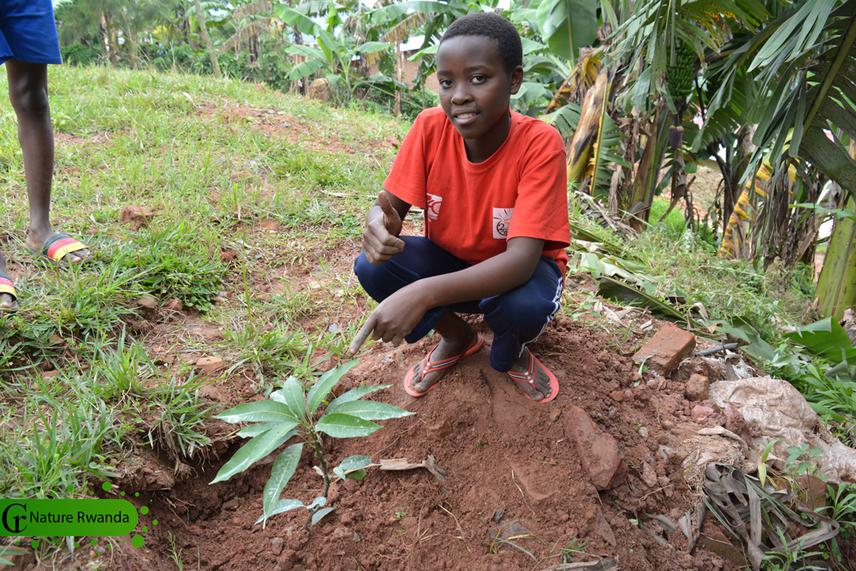Prudence Ndabasanze
Other projects
18 Mar 2021
Community-Based Ecological Monitoring of Critically Endangered Hooded Vulture in Rwanda
28 Nov 2022
Conservation of Busaga Forest; a Breeding site of Critically Endangered Hooded Vulture
Young people are key players in biodiversity conservation but are always left behind and have limited knowledge and skills to contribute their passion and commitment to preserve nature. There is no doubt that engaging them, mainly for the conservation of IBAs in danger, is crucial for their sustainable conservation. As part of this project, Nature Rwanda will create three new environmental clubs and revamp two existing environmental clubs in high schools in Bugesera district. At the end of the project, 250 Rwandans youth will be equipped with the knowledge and skills they need to contribute to the sustainable conservation of Akanyaru wetlands. At each of the five schools that will be part of this project, a small fruit garden will be established to allow club members to get hands on experience on raising and taking care of trees to address climate change and improving a healthy living style. In addition, the #MyWetlandMyFuture campaign will be held at Akanyaru wetland and will be livestream on social media as part of the celebration of World Wetlands Day 2020.

Environmental clubs members after training.
This project will be implemented at Akanyaru Wetlands, listed as one of endangered Important Birds and Biodiversity Areas (IBAs in Rwanda), through BirdLife International criteria A1 and A3 (A06). Its vegetation consists of a variety of marshy habitats and papyrus swamp. It is home of some of birds’ species listed on IUCN Red list; including the endangered Grey crowned Crane, and Madagascar Pond Heron. Its conservation status is a concern than even before. This project will contribute to the conservation and promotion of this IBA in danger and multiply impact in the community by engaging and empowering young people as key stakeholders always left behind in conservation.
Through this project, Nature Rwanda will establish three new environmental clubs and revamp two existing environmental clubs with about 50 club members in each club. In 8 months, 250 Rwandan youth will be equipped with knowledge and skills they need to contribute to the sustainable conservation of Akanyaru IBA in danger. Nature Rwanda will promote gender equity in conservation and ensure that at least 60% of total project beneficiaries will be female. We anticipate that at least each project beneficiaries will engage 4 other people such as their siblings, parents and neighbours so that our indirect impact will reach to about 1,000 Rwandans in this region. At each of the five schools that will be part of this project, a small fruit garden will be established to allow club members to get hands on experience on raising and taking care of trees to address climate change and improving a healthy living style. Moreover, #MyWetlandMyFuture campaign will be conducted online as one of the activities leading to the celebration of the World Wetlands day on Sunday February 2nd, 2020 under the theme “Wetlands and Biodiversity”. This one weeklong campaign will feature poems, sketches and message from project beneficiaries to demonstrate the unbreakable tie between wetlands and biodiversity and mostly focusing on how young people must contribute to the sustainable conservation of this IBAs in danger. In order to empower them in sustainable ways, Nature Rwanda will organize training session and distribute 50 books entitled “Africa, our home” in all our five partners school through our collaboration with Pan African Conservation Education Project on distributing environmental education materials in environmental clubs.